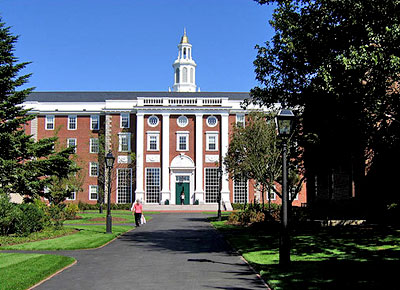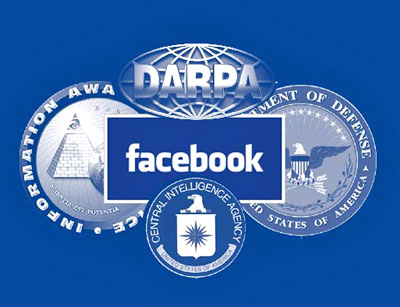|
June 3, 2012
In my last article, I identified what I
see as
The 5 Most Blatantly Corrupt Industries on The
Planet, and offered solutions to the disharmony they
create.
In most circles it has become well
accepted that Banking and Energy are profoundly corrupt industries,
but they are seen by many as isolated infections in an otherwise
forthright world economy.
1. Values Investing
Most people assume that the credit crisis we’ve been facing for the last 4 years is entirely the result of foul play by the big banks and Wall Street. While they are, of course, the ones who triggered the ‘recession,’ they were far from the only ones who enabled it.
Let’s consider a couple data points:
Take a moment to process that ratio; there is 5.9 times as much debt as there is money in the US economy.
No amount of clever budget
rearrangement, therefore, can compensate for the fact that there is
not enough money to pay off all that debt.
This is the reality of our economic system - we are slaves to it.
Thanks to
movies like
Zeitgeist: Addendum, many people have come to realize
the fraudulent nature of the US dollar (aka
Federal Reserve Note).
Incorrectly, however, most assume that it is entirely the result of
fiat mechanics and fractional reserve banking.
The very
concept of interest-based lending creates the same inherent schism.
This includes credit unions, venture capital, and even lending your
friend five bucks with interest.
This makes us (as a collective) more
enslaved to our economic system, and more vulnerable to engineered
credit crises such as we’ve recently experienced.
Because money only comes into circulation through interest-based loans, there is no way for us all to become rich together and beat this game.
It literally has nothing to do with how hard we collectively work.
The only way to overcome “money” is to
make it obsolete. Invest in things like growing your own food at
home, installing solar panels - things that empower you to survive
without the monetary system.
When you have all the food and energy
you need in your own back yard, you will not be manipulable.
2. Software
Companies like Apple,
Google, and
Microsoft are often held up as
noble examples of progress through capitalism. Rarely, however,
are they recognized as organizations whose model for business
further compounds our dependency upon a fraudulent monetary system.
Let me explain: It is estimated that Microsoft, Apple, and Google operating systems account for over 96% of Internet usage [7].
Products released by these companies are written with proprietary coding, meaning that the only people who actually have access to the script for this software are people who work for that company.
Anyone who freely disseminates that information would be violating intellectual copyright agreements. For the average user, this means that the only way to participate in that area of technological progress is by further involving themselves in a Ponzi-economy.
But is that really how it has to be?
Juxtaposed with proprietary coding, open-source software is just that - software which allows anyone and everyone to access, play with, and improve upon the scripts for that product.
In other words, it allows technology to
progress, whether money is involved or not.
Microsoft and Apple, on the other hand, have actually had to encrypt their codes to be top-secret, and use the threat of legal persecution to keep the general public from improving upon their software free of charge.
Is it possible that
modern economists are missing something about what inspires human
behavior?
They are almost all free to download, and, in my experience, are just as good as the big company’s products. They weigh lighter on your computer’s processing power, as well as on your soul.
Try them out and see what you think.
Similar to software, companies like Google, Facebook and Twitter are revered as the “best of capitalism,” bringing people together free of charge.
However, as anyone who’s looked into the matter knows, that’s not exactly where the story ends. Because all your information is saved for you on “cloud storage,” none of it is really your information.
Every “like,” every ”tweet,” and every private message you have ever sent (including email), are saved on a hard drive hundreds of miles away, even after you “delete” them.
The way these companies turn a profit is
by selling your “personal” information to marketing organizations,
so that companies can cater advertisements specifically to your
demographic.
If one of them passes, it will effectively give the NSA and/or CIA the power to silence dissident free speech based on what it subjectively considers to be a “threat to domestic security.”
Their hope is that the world will become
dependent on social media like Facebook for all our communications,
so that it becomes something that they can control from a
centralized structure, with the push of a button.
If you haven’t looked into this yet, look into it. The front-runner at the moment seems to be a project called Diaspora, designed by four friends from NYU.
The
concept is to make a Facebook-like entity with no central hub to
store information.
Instead, individuals will setup their own “Pods,” which provide cloud info storage to themselves and others.
So far this
organization has around 40 pods, dispersed randomly around the US,
Europe, and South America.
But the centralized control center like
Facebook would not exist.
First of all, let’s not confuse our variables: it is the Science Industry, not the Scientific Method, which I am referring to here.
Because these two
concepts are so commonly associated, many people have an almost
religious reverence for science-related businesses and view those
who question it to be all but blasphemous.
In fact, the British Medical Journal concluded from a recent informational study that,
Surprised? Of course, thanks to techniques like peer review and study replication, published scientific work is not likely to be a complete forgery.
That being said, because of the bias in
funding, our scientific mainstream still creates a very skewed lens
through which we interpret reality.
To some people this may sound strange, but it is absolutely essential.
Why? Because the number of situations that we could research and collect data on is literally infinite.
How do we decide what is worth studying, and what is not? In today’s world, the answer to that question is money.
Whether a study supports a financial interest is largely what determines whether it gets carried out.
But should that really be the
determining factor?
This point alone does much to elucidate
the distortion we see in our world today.
This issue is messy, sensitive, and taboo as hell.
All the more reason, however, why it needs to be addressed.
For that reason, I’ll keep my opinion out of it as much as I can reasonably do, and just share these statistics:
It is generally assumed that corporate donations are altruistic in nature, and that scrutiny of them is out of line.
What such thinking fails to realize is
that corporate donations and not just donations - they are
strategically placed investments. At the executive level of any big
company, nothing matters beyond the bottom line. So when they donate
money to a school, or fund a campaign like “Procter & Gamble
presents Thank You, Mom,” unfortunately, it is not simply out of the
goodness of their hearts.
Does that sound a little crazy to anyone
besides me?
While some educational programs are insightful (and not just indoctrinating), it’s a mistake to ever assume that someone else is responsible for your intellectual growth.
I personally made the choice to withdraw from University last fall when I finally acknowledged that I (like 99% of students) had been going to school for the wrong reasons.
I wasn’t there because I really believed I was learning anything mind-blowing - I was there because I was afraid not to be there.
That’s no way to go through life...
In a sentence, it has transformed the
way I see the world - how many college students can really say that?
If we want to see real change in our
world, simply asking the coercive forces to go away will not do it.
We have to start with ourselves, and start supporting alternatives
to structures that keep us locked into bondage.
But it will.
There is a momentum inherent to such
small actions that will empower you and others around you keep
taking those little steps, until they become bigger steps, and you
are running full-bore toward a different type of tomorrow.
In either case, it all starts with one
little step.
|











